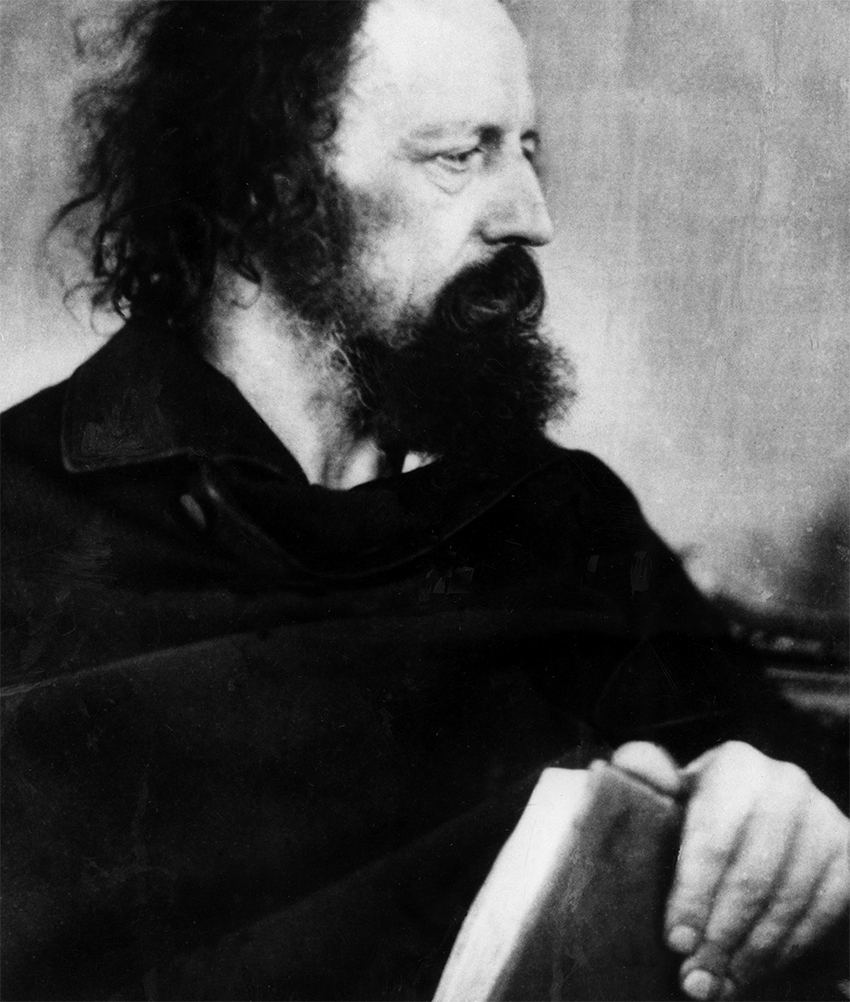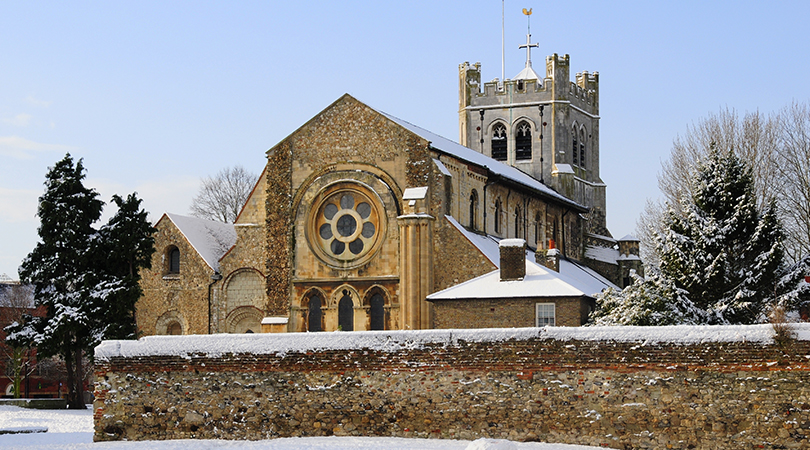In 1833, Arthur Henry Hallam died in Vienna of cerebral hemorrhage at the tender age of twenty-two. His life and death might have been forgotten to history, were it not for his Cambridge friend and Queen Victoria’s beloved Poet Laureate: Alfred, Lord Tennyson.
For the next 17 years, Lord Tennyson composed and edited a sprawling elegy to his dear friend. The resultant work, published anonymously in 1850 under the Latin title “In Memoriam A.H.H. Obiit MDCCCXXXIII” (In Memoriam A.H.H. Died 1833), is a narrative poem of 2,916 lines. Across 133 cantos, the poet explores life and death, the randomness of nature and the steadfastness of faith.
“Ring Out, Wild Bells” forms one part of the full dirge. It is said to have been inspired by the ‘wild bells’ of Waltham Abbey in Essex, United Kingdom. Lord Tennyson, staying in the vicinity, threw open his window on New Year’s Eve to hear the peal bells ringing out the old year and ringing in the new. For the poet, a pining for the past and a hope for release were made manifest in the clamoring bells.

Image: Portrait photograph of Alfred, Lord Tennyson (1809-1892).
"Ring Out, Wild Bells"
Excerpted from “In Memoriam A.H.H. Obiit MDCCCXXXIII”
Alfred, Lord Tennyson (1809-1892)
Ring out, wild bells, to the wild sky,
The flying cloud, the frosty light:
The year is dying in the night;
Ring out, wild bells, and let him die.
Ring out the old, ring in the new,
Ring, happy bells, across the snow:
The year is going, let him go;
Ring out the false, ring in the true.
Ring out the grief that saps the mind
For those that here we see no more;
Ring out the feud of rich and poor,
Ring in redress to all mankind.
Ring out a slowly dying cause,
And ancient forms of party strife;
Ring in the nobler modes of life,
With sweeter manners, purer laws.
Ring out the want, the care, the sin,
The faithless coldness of the times;
Ring out, ring out my mournful rhymes
But ring the fuller minstrel in.
Ring out false pride in place and blood,
The civic slander and the spite;
Ring in the love of truth and right,
Ring in the common love of good.
Ring out old shapes of foul disease;
Ring out the narrowing lust of gold;
Ring out the thousand wars of old,
Ring in the thousand years of peace.
Ring in the valiant man and free,
The larger heart, the kindlier hand;
Ring out the darkness of the land,
Ring in the Christ that is to be.
Cover image: The Abbey Church of Waltham Holy Cross and St. Lawrence, also called Waltham Abbey, in Essex, United Kingdom, after a winter snow. The church’s ring of peal bells resounding on New Year’s Eve is said to have inspired the poem, “Ring Out, Wild Bells” by Alfred, Lord Tennyson.



